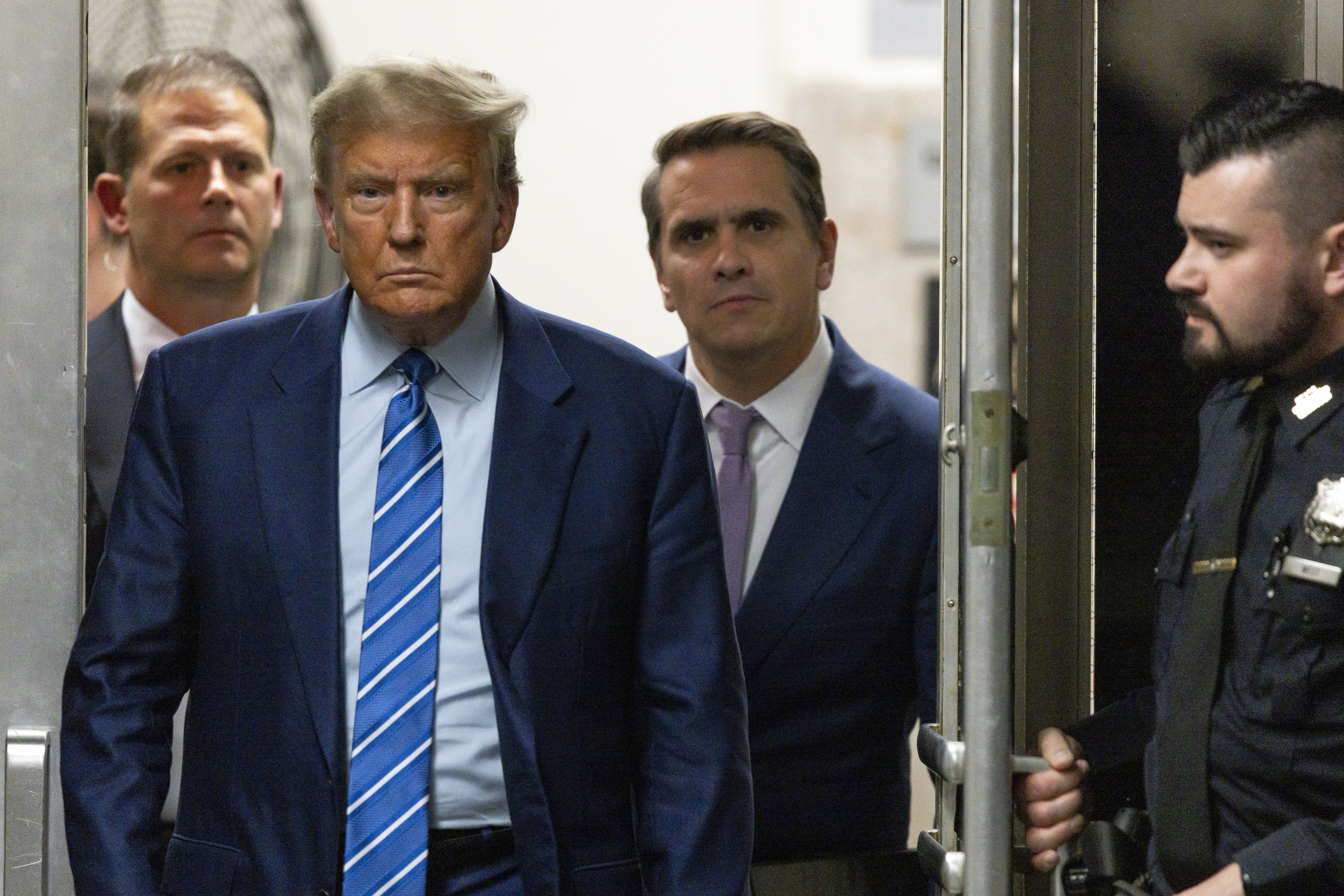Classic zombies — like the ones in George Romero’s 1968 film “The Night of the Living Dead” — shamble. The zombies in 2002’s “28 Days Later,” they sprint.
That meant Zombie School was needed on the Atlanta-based set of AMC’s new apocalyptic zombie series, “The Walking Dead.”
“We wanted to make sure that the zombies that appear on the show are all on the same page,” explained producer Gale Ann Hurd. “So we showed (our extras) footage of zombies that were consistent with what we wanted on the show. And even though it was 100 degrees with 100 percent humidity, they still had fun. There’s just something about zombies that attracts people.”
Ain’t it the truth. Zombies are — true to their mythological form — everywhere these days. AMC’s got “The Walking Dead,” created and written by Academy Award-nominee Frank Darabont, debuting at 10 p.m. on Halloween, while IFC’s British miniseries “Dead Set” premiered Oct. 25. Even Comedy Central’s “Ugly Americans,” which debuted in March, stars animated zombies.
Stay calm, but the culture has been zombified.
Yet, zombies are relatively new to television. Hurd believes “Walking’s” undead may be the first to have risen (at least, in non-animated form) in a prime-time TV series. “We wanted to break new ground,” she said — irony intact — “and deliver something people have never seen on TV.”
By which she means deliver a regular series in which zombies are ever present, if not exactly main characters. “Walking Dead” focuses on what happens to the world after the dead begin to rise, which leads to the downfall of civilization. The lead character, a police officer, wakes in the hospital to find himself alone except for the undead. When he escapes, it’s off to find his family and then figure out how to survive. The living humans are as much a risk as the dead ones, in many cases.
U.S. & World
'The zombie movie that never ends'
“I’ve always been a fan of zombie movies, but I’m not usually a fan of how they end. I felt there was more story to be told,” said Robert Kirkman, whose long-running comic series was adapted for “Walking.” “So this way we get to look at how people crack under pressure or rise to the occasion — and the interaction of humans becomes almost as dangerous as interaction with zombies.
“I wanted to create the zombie movie that never ends,” he added, and so far he has. Kirkman’s comic series has been running since 2003 with no end in sight. “ ‘Spider-Man’ and ‘Superman’ have been around for decades. I feel like I’m only just getting started.”
Which means there could be many, many seasons of “Walking,” should it take off. And if it does, zombies may start giving vampires a run for their money. But this is a different kind of monster storytelling: The bloodsucker heroes and villains of HBO's “True Blood” and The CW's “The Vampire Diaries,” for example, are walking, talking characters with feelings and emotions (if not souls). Not so the zombies of “Walking Dead.”
And that may be a big reason why zombies haven’t made for riveting television on their own. Prior to this new spate of series, practically the only time zombies got the spotlight was in the 1960s ABC soap “Dark Shadows,” which was known for a monsteriffic cast that included vampires and zombies.
The unreasonableness of monsters
Zombie appeal has a long history, cropping up in literature around the 19th century. Freud even made reference to “the uncanny,” something that’s both familiar (like a human) and bizarre and unfamiliar (like an undead human coming after you) simultaneously. Haitian voodoo also makes use of zombies in rituals in which radical hypnosis plays a part.
But in modern times, zombies re-established a hold in the public’s braaaains with Romero’s “Living Dead,” a low-budget B picture that also alluded to the then-ongoing Vietnam War. People became fascinated as much with the concept of zombies as their metaphorical meanings, which often reflect anxieties of the time.
Stephen Asma, professor of philosophy at Columbia College, Chicago, and author of “On Monsters: An Unnatural History of Our Worst Fears,” suggests that part of the current appeal may tie into the unreasonableness of monsters — and terrorists.
“An enemy, in principle, you could talk to them and negotiate with them,” said Asma. “You can’t with monsters. They’re going to just keep coming. It’s not that a jihadist can’t be talked to, but it’s clear some of them can’t be negotiated with — and that represents a very fundamental human fear.”
'The gross factor'
So will the encroaching zombie assault send vampires back into their coffins? Darabont hopes so. He recently noted that zombies are “the anti-sparkle,” referring to “Twilight’s” neck-biters.
“Americans” executive producer David Stern has a suggestion — that it’s time for gender parity. “Not to be sexist, but vampires are for girls and zombies are for boys,” he said. “When we did a spoof on ‘Twilight,’ my primarily male staff had to take a lot of prodding to watch the movie before we could spoof it. But zombies — any time you show a zombie, men line up. The gross factor just appeals to men.”
Which may help beef up AMC’s male demographic in viewers, but there’s just as good a chance that women will want to tune in for the emotional resonance behind the other half of “Walking’s” end-of-the-world story, which includes women warriors and tough-as-nails mothers defending their cubs.
Still, Kirkman definitely agrees that zombies remain grossly fascinating as objects of study. “Zombies are much truer to themes of horror,” he said. “A lot of the time, vampires are very human and they’re attractive, or cool — but zombies are just horrible.”
Horrible, but also fun, something few vampires ever are. “You can dress up as a vampire and bare your teeth and show your fangs,” said Hurd, “but it’s not as much fun as shambling along, dragging your feet, arms dangling.”
Randee Dawn is a freelance writer based in New York, and was born with a remote control in her hand. She is the co-author of “The Law & Order: SVU Unofficial Companion” and was bitten by the zombie bug long enough to write "Can't Keep a Dead Man Down" for Well Told Tales' Podcast.



